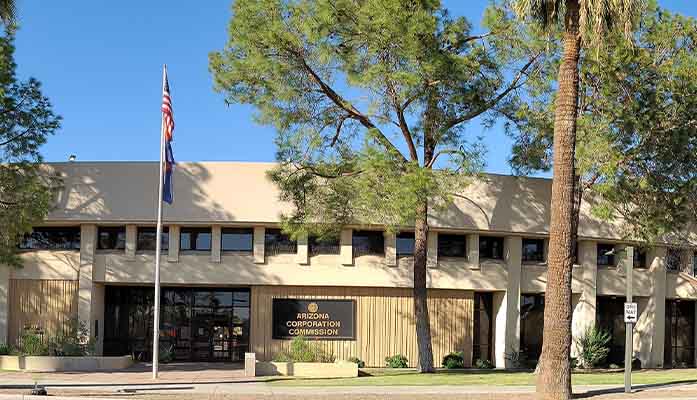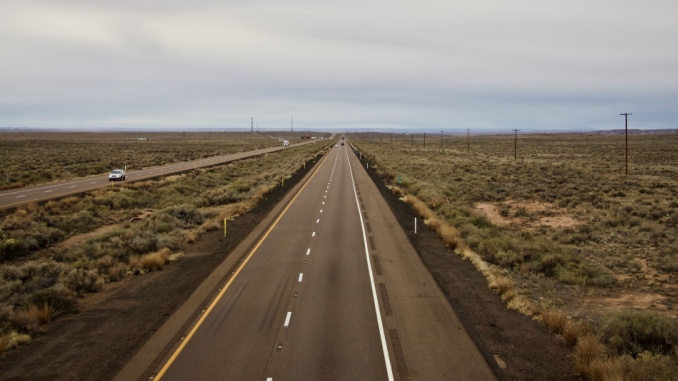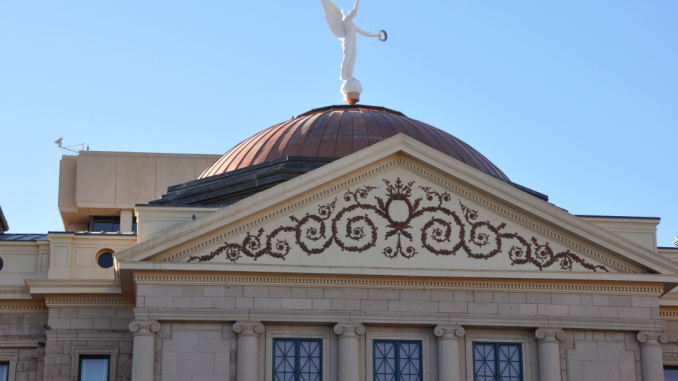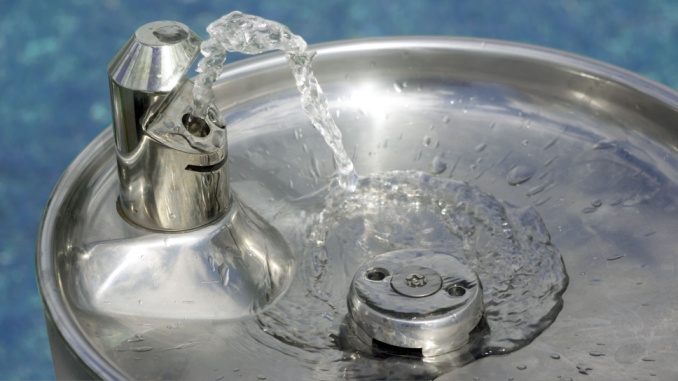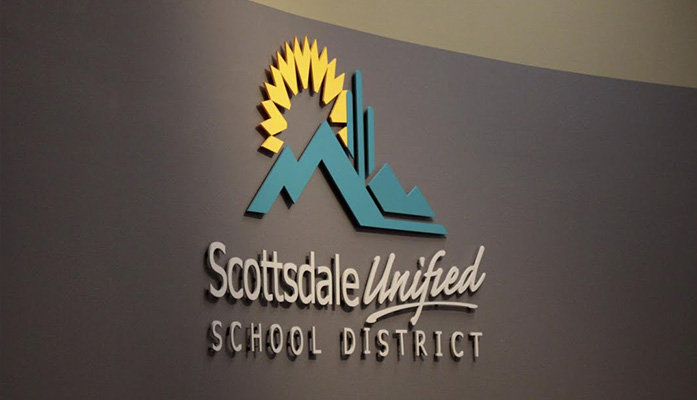
by Jonathan Eberle | Dec 19, 2025 | Economy, News
By Jonathan Eberle |
The Arizona Corporation Commission (ACC) is preparing to roll out a new online business filing system, Arizona Business Connect, which is scheduled to go live on January 12, 2026. The new platform will replace the Commission’s current eCorp system and is intended to modernize how businesses file and access corporate records in the state.
According to the ACC, Arizona Business Connect will offer updated technology, improved security features, and enhanced functionality designed to streamline the filing process and improve the overall customer experience for corporations and other business entities.
To complete the transition, the Commission will temporarily shut down the existing eCorp portal to transfer and verify a large volume of data before launching the new system. As a result, online filing and business searches through eCorp will be unavailable beginning at 5:00 p.m. Mountain Standard Time on Friday, January 2, 2026.
During this transition period, corporations will not be able to file documents or search business records online. However, the Commission says customers will still be able to submit filings using paper forms. Paper filings may be delivered in person at ACC offices in downtown Phoenix or Tucson or sent by mail or fax.
All paper documents received after the eCorp shutdown on January 2 will be assigned an effective date based on when they are received by the Commission. Those documents will not be entered into the new Arizona Business Connect system until January 12 or shortly after the portal becomes operational.
Jonathan Eberle is a reporter for AZ Free News. You can send him news tips using this link.

by Jonathan Eberle | Dec 18, 2025 | News
By Jonathan Eberle |
Arizona state Rep. Nick Kupper (R-LD25) has introduced legislation that would allow higher speed limits on certain rural interstate highways, citing roadway design, safety data, and differences between urban and rural driving conditions.
House Bill 2059, known as the Reasonable and Prudent Interstate Driving (RAPID) Act, would give the Arizona Department of Transportation authority to designate limited stretches of rural interstates as “derestricted” speed zones for non-commercial vehicles during daylight hours. The proposal maintains an 80-mile-per-hour maximum speed limit at night and preserves existing laws addressing unsafe or reckless driving.
Under the bill, ADOT would determine which highway segments qualify based on engineering studies, roadway design standards, and historical safety records. The legislation also increases civil penalties for drivers who misuse the derestricted zones, including those who engage in aggressive or dangerous driving behavior.
The measure requires annual safety audits of any approved segments and directs ADOT to coordinate enforcement efforts with the Arizona Department of Public Safety. In addition, the bill calls for a public education campaign to ensure drivers understand expectations in derestricted zones, including proper lane use and passing rules.
The proposal would begin with a one-year pilot program on a segment of Interstate 8. Any continuation or expansion would depend on safety outcomes and compliance with the bill’s requirements.
“Most drivers can tell the difference between a crowded city freeway and a wide-open stretch of rural interstate,” Kupper said in a statement. “The RAPID Act accounts for that difference. It will let us raise speeds where it’s safe, keep tough penalties for reckless driving, and update our laws to reflect how people actually use these roads.”
Kupper pointed to Montana’s former “reasonable and prudent” daytime speed standard as a precedent. According to a review by Montana’s Legislative Audit Division, average speeds increased after posted daytime limits were removed, but crash and fatality rates per vehicle mile traveled continued to decline and remained comparable to neighboring states. The audit concluded that factors such as seatbelt use and driver behavior had a greater effect on safety outcomes than posted speed limits alone.
“Montana showed that you can modernize speed laws without sacrificing safety,” Kupper said. “When rules are clear and focused on driver behavior, states can let safe highways operate as they were designed to operate.”
Jonathan Eberle is a reporter for AZ Free News. You can send him news tips using this link.

by Jonathan Eberle | Dec 17, 2025 | News
By Jonathan Eberle |
Arizona Senate Republicans released their 2026 Majority Plan on Monday, outlining policy priorities aimed at reducing the cost of living, strengthening public safety, supporting economic growth, and increasing oversight of state government.
The plan follows several years of divided government at the Capitol and builds on what Republicans describe as recent legislative accomplishments, including balanced budgets and multiple tax cuts passed without raising overall taxes. Caucus leaders say the 2026 agenda is intended to address challenges facing Arizona families, particularly rising housing costs, inflation, and concerns about government accountability.
“Arizonans want affordable living, safe neighborhoods, and a government that strengthens — not weakens — our economy,” Senate President Warren Petersen said in a statement. “While the Governor’s vetoes stall progress, Senate Republicans remain focused on protecting taxpayers, upholding Arizona’s freedoms, and preventing the radical left from turning our state into California.”
A central component of the plan is a proposed tax and budget framework aimed at providing relief from rising prices. Senate Republicans say they are pursuing reductions in state taxes on tips and overtime, expanded deductions for seniors, and policies to support small businesses. Caucus leaders estimate the proposals would return more than $1 billion to taxpayers over three years while pairing tax relief with restrained government spending.
Housing affordability is another major focus. The plan cites regulatory barriers, slow permitting processes, and executive-level actions as factors contributing to Arizona’s housing shortage. Republicans say they support reforms to speed up construction, reduce fees, and limit local restrictions on new housing, while aligning development decisions with water availability data.
“Arizonans can’t afford policies that stall development, inflate housing prices, or jeopardize our water security,” Senate President Pro Tempore T.J. Shope said. “Senate Republicans are advancing practical, data-driven solutions that support responsible growth and keep Arizona livable for the next generation.”
Water policy is addressed alongside housing, particularly as negotiations over the Colorado River continue. The plan emphasizes the Legislature’s statutory role in those talks and calls for shared conservation efforts among basin states to avoid placing disproportionate burdens on Arizona.
Public safety proposals include addressing staffing shortages in correctional facilities, increasing oversight of state agencies, and strengthening accountability for violent offenders and probation violators. The plan also reiterates support for Second Amendment protections and public safety pension stability.
Senate Majority Leader John Kavanagh criticized the current administration’s record, saying, “Arizonans deserve leadership that solves problems, not a wolf in sheep’s clothing who blocks solutions and hopes voters won’t notice.”
Additional priorities outlined in the plan include border security enforcement, election integrity measures, education policy, transportation and infrastructure investment, emergency preparedness, artificial intelligence safeguards, family court reform, veterans’ services, and oversight of agencies such as AHCCCS and the Department of Child Safety. Opening day of the second regular session of the 57th Legislature is scheduled for January 12, when many of the proposals are expected to be introduced.
Jonathan Eberle is a reporter for AZ Free News. You can send him news tips using this link.

by Jonathan Eberle | Dec 16, 2025 | News
By Jonathan Eberle |
Arizona State Senator Janae Shamp (R-LD29) has introduced legislation that would prohibit the addition of fluoride and fluoride-containing compounds to public drinking water systems across the state. The proposal, Senate Bill 1019, would bar state agencies, municipalities, and other political subdivisions from fluoridating public water supplies. Shamp, a registered nurse and former Senate majority leader, says the bill is intended to limit what she characterizes as government-mandated medical treatment and to give individuals greater control over their health decisions.
In announcing the legislation, Shamp cited concerns about the practice of water fluoridation, including questions about consent and potential health risks. Supporters of the bill argue that fluoride is widely available through toothpaste, mouth rinses, and dental treatments, making its addition to drinking water unnecessary.
Shamp also referenced research suggesting that excessive fluoride exposure may be associated with adverse health outcomes, including potential impacts on cognitive development in children and risks to bone health. Public health authorities, including the Centers for Disease Control and Prevention, have long maintained that water fluoridation at recommended levels is safe and effective in reducing tooth decay, a position that has been the subject of ongoing debate nationwide.
“Medical decisions should be made by individuals and families, not imposed through public utilities,” Shamp said in a statement. She added that banning fluoridation would allow residents to choose whether and how they use fluoride products.
The senator also pointed to financial considerations, arguing that eliminating fluoridation could reduce costs associated with chemicals, equipment, and maintenance for water systems. Those savings, she said, could be redirected toward infrastructure improvements or water conservation efforts. The bill comes as other states have reconsidered fluoridation policies in recent years, with lawmakers in Utah and Florida passing measures to limit or ban the practice in certain jurisdictions. Shamp framed SB 1019 as part of a broader movement emphasizing individual choice and medical autonomy.
If approved by the Legislature and signed into law, Arizona would join a small but growing number of states restricting fluoride use in public water systems. The bill is expected to generate debate among lawmakers, public health officials, and dental professionals as it moves through the legislative process.
Jonathan Eberle is a reporter for AZ Free News. You can send him news tips using this link.

by Jonathan Eberle | Dec 14, 2025 | Education, News
By Jonathan Eberle |
Hours after State Representative Matt Gress urged the Scottsdale Unified School District (SUSD) Governing Board to postpone its decision on whether to close two schools, the Board voted to permanently shutter Pima Elementary and Echo Canyon K-8—fueling frustration among families and intensifying scrutiny of the district’s financial review process.
Gress, who chairs the House Education Committee and co-chairs the Joint Legislative Audit Committee, had asked the Board to wait until February 1 before taking action. In a letter sent Monday, he warned that the district had not provided the public with a complete fiscal analysis or a thorough exploration of alternatives.
“Closing schools has lasting consequences. Before the board takes any action, the public should see a full explanation of the fiscal impact, the alternatives that were considered, and how the district plans to support the students who would be uprooted,” Gress wrote. “Based on what I have seen so far, that work is incomplete.”
At Tuesday’s meeting, the Governing Board voted 3–2 to permanently close both Pima Elementary and Echo Canyon K-8 beginning next school year. The decision comes as SUSD faces declining enrollment, rising operating costs, and a projected budget deficit that could reach $9 million by 2026.
Superintendent Dr. Scott Menzel told families that the district can no longer sustain all of its campuses under current conditions. “These realities make it increasingly difficult to sustain all of our schools in their current form while continuing to provide the world-class, future-focused education our community expects and deserves,” he said.
District data presented Tuesday showed that 12% of Pima families and 17% of Echo Canyon families have already enrolled in alternate district schools for next year—figures officials say reflect the difficult choices families are already making.
While the Board cited urgency, Gress countered that SUSD still has financial alternatives that would allow more time for a complete public review before making irreversible decisions. He emphasized that families deserve clarity before the district proceeds with closures that will significantly disrupt school communities.
“This decision can wait,” he said. “Taking the time to do this right will help the board make a more informed and beneficial choice.”
With the vote now final, the repurposing process for both campuses is scheduled to begin in the 2026–2027 school year—while families, lawmakers, and district officials continue to debate whether the closures were necessary, inevitable, or simply premature.
Jonathan Eberle is a reporter for AZ Free News. You can send him news tips using this link.
